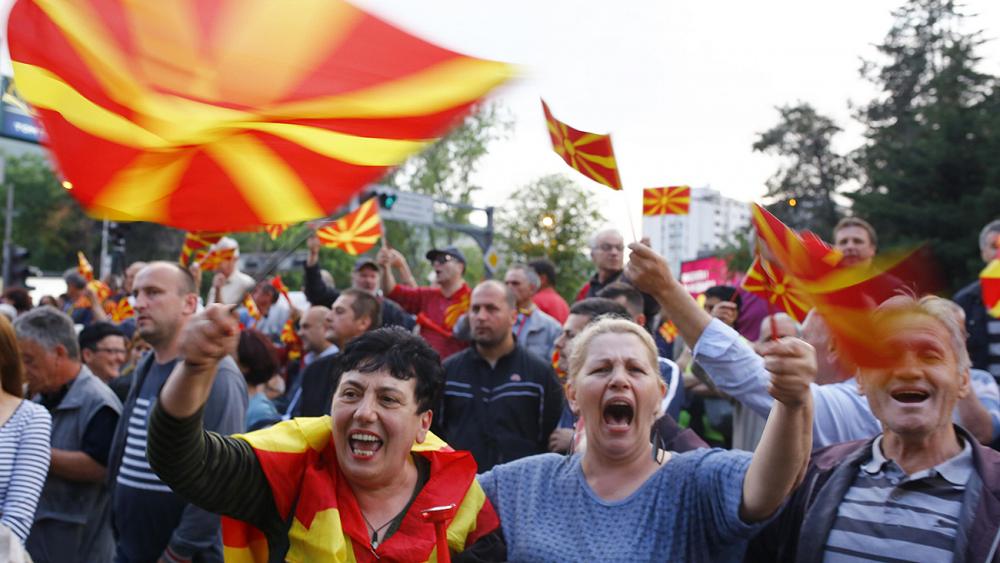
Macedonia has been going through a political crisis for over two years. It can be seen that the current crisis reached to a peak point with the failed attempts to form a government following the elections that took place in December 2016, the country-wide unrest, and the injuring of more than a hundred people as the result of an attack carried out by a group against the Macedonian parliament. It is possible to say that with the said attack, the crisis in Macedonia reached a turning point.
None of the parties received enough votes during elections held on 11 December 2016 to come to power alone. Macedonian nationalist Internal Macedonian Revolutionary Organization – Democratic Party for Macedonian National Unity (VMRO-DPMNE) gained 51 seats, Social Democrats (SDMS) gained 49 seats, the Albanian parties of Democratic Union for Integration, BESA Movement, Alliance for Albanians, and the Democratic Party of Albanians (PDSH) gained 10, 5, 3, and 2 seats respectively.[1] At the parliament with a total of 120 MPs, VMRO-DPMNE gained most of the seats. Therefore, President Gyorge Ivanov gave the mandate to form a new government to Nikola Gruevski, the Chairperson of VMRO-DPMNE. However, Gruevski failed to fulfill his duty within the legal period.
As the consequence of this process, Zoran Zaev, Chairperson of SDMS, agreed with Albanian minority parties to form a government and hence achieved the number of seats necessary to form a government. SDSM and the Albanian minority parties agreed to make Albanian an official language in some regions in the country and to give more rights to Albanian minority.[2] However, President Ivanov stated that particularly the language issue will damage the country and therefore did not give the mandate to form a government to Zaev. Citizens of Albanian heritage account for 25% of the total population of Macedonia, which is 1.2 million.
While the work to form a government continued, the process to elect a speaker of parliament continued as well. VMRO-DPMNE demonstrated an attitude that hindered the efforts to elect a new speaker. Despite VMRO-DPMNE’s negative attitude, the social democrats and the ethnic Albanian minority parties managed to elect Talat Xaferi, an ethnic Albanian, as the new speaker of the parliament on the evening of 27 April. Thereon, a couple of hundred VMRO-DPMNE supporters who had gathered in front of the parliament broke into the building and attacked social democrat and ethnic Albanian MPs and journalists. News sources claimed that at least 4 MPs were injured. VMRO-DPMNE stated that they do not recognize the election and claimed that the rules of the parliament have been violated.
On the surface, it is claimed that the problems have occurred due to the tension between the Macedonian majority and ethnic Albanian minority groups that have been ongoing for a while. However, it is known that the actual reason that lays behind the problems is a corruption scandal. Chairperson of VMRO-DPMNE Nikola Gruevski had led the coalition government formed with an Albanian minority party as the Prime Minister for 10 years since 2006. During 2015, SDMS begin to publish sound recordings containing the claims that Prime Minister Gruevski and some leading state officials were engaged in corruption, electoral fraud, and interference in the judiciary. Following the claims, the Specially Authorized Prosecutor took action and filed an indictment about Gruevski and other VMRO-DPMNE leaders contained in the sound recordings.
An article published in Economist claims that the attack that took place on 27 April was organized by VMRO-DPMNE and there is a fear that its party leadership will be arrested in case the party loses power.[3] In the last couple of weeks, the claims stating that President Ivanov will declare a state of emergency have been intensified.[4] The concerns that many people, including Zoran Zaev, Chairperson of SDMS, will be arrested have become widespread.[5] In the beginning of May, 22 “patriotic associations” established the Macedonia National Front and announced their support for VMRO-DPMNE and that they will use “all available non-violent or violent means to defend the fatherland”.[6] In connection to this, according to one news source, “during the attack on parliament, emergency barriers to hold out intruders were not activated; some of the police protecting parliament, who are under the control of an official appointed by VMRO, fraternised with the mob.”[7]
What will happen in the domestic affairs of Macedonia is likely tied to the positions of foreign actors. Both the European Union (EU) and the United States of America (USA) supported the election of the new parliament speaker, therefore, insinuated their content regarding the end of the VMRO-DPMNE era. Counter to that, Russia supported VMRO-DPMNE during the crisis, and claimed that “Western countries want to create a Greater Albania which would destroy Macedonia.”[8] At this point, the main question is whether both EU and USA will keep their promises by isolating Gruevski and his party and implement sanctions.[9]
Xhaferi, as he started his official duty in the aftermath the crisis, paid his first foreign visit to Brussels. This step gave the signal that the EU integration process of Macedonia will continue. Xhaferi met Federica Mogherini, High Representative for Foreign Affairs and Security Policy/Vice-President of the European Commission, and Johannes Hahn, European Commissioner for Neighbourhood Policy and Enlargement Negotiations. The fact that Xaferi visited EU representatives and EU’s messages following the events shows that the EU is backing Xaferi. Hahn, who had previously issued a joint written statement with Mogherini regarding the crisis in Macedonia, stated during Xhaferi’s visit that “All MPs, including the opposition, are expected to play a constructive rather than obstructive role, and all actors must refrain from provocative statements and actions… Parliament must be the forum to debate the serious challenges facing the country…”[10]
Finally, last Wednesday, the new Speaker of the Parliament Xhaferi stated that he will ask President Ivanov to give the mandate to form the new government to the Chairperson of SDMS Zoran Zaev. Undoubtedly, if President Ivanov assigns Zaev as the new Prime Minister fitting with the democratic procedures, it will be an important step towards easing the tensions for a while in Macedonia.
*AVİM Analyst Özge Nur Öğütcü has contributed to this article.
Photo: Euronews
[1] Kayhan Gül, “Siyasi krizden meclisteki olaylara: Makedonya'da yaşananlar”, Anadolu Ajansı, April 28, 2017, accessed May 8, 2017, http://aa.com.tr/tr/dunya/siyasi-krizden-meclisteki-olaylara-makedonyada-yasananlar/807212
[2] Alan Crosby, “Explainer: Macedonia At A Crossroads”, RFE/RL, April 28, 2017, accessed May 8, 2017, https://www.rferl.org/a/macedonia-at-a-crossroad-explainer-violence/28457721.html
[3] “Makedonya'daki "Yasa Dışı Dinleme" İddiaları”, Haberler, February 25, 2015, accessed May 8, 2017, http://www.haberler.com/makedonya-daki-yasa-disi-dinleme-iddialari-7007955-haberi/
[4] “Macedonian nationalists storm the parliament to hold on to power”, The Economist, April 28, 2017, accessed May 8, 2017, http://www.economist.com/news/europe/21721509-party-backed-russia-fears-losing-office-might-mean-jail-some-its
[5] Sinisa Jakov Marusic ,“‘Martial Law’ Rumour Fuels Unease in Macedonia”, Balkan Insight, April 26, 2017, accessed May 8, http://www.balkaninsight.com/en/article/secrecy-over-bunker-fuels-tension-in-macedonia-04-25-2017
[6] “Macedonian nationalists storm the parliament to hold on to power”, The Economist, April 28, 2017, accessed May 8, 2017, http://www.economist.com/news/europe/21721509-party-backed-russia-fears-losing-office-might-mean-jail-some-its
[7] Ibid.
[8] Ibid.
[9] Ibid.
[10] “Press Release - Commissioner Johannes Hahn following his meeting with Talat Xhaferi, new President of the Parliament of the former Yugoslav Republic of Macedonia in Brussels”, European Commission, May 4, 2017, accessed May 15, 2017, https://ec.europa.eu/commission/commissioners/2014-2019/hahn/announcements/commissioner-johannes-hahn-following-his-meeting-talat-xhaferi-new-president-parliament-former_en
© 2009-2025 Center for Eurasian Studies (AVİM) All Rights Reserved
No comments yet.
-
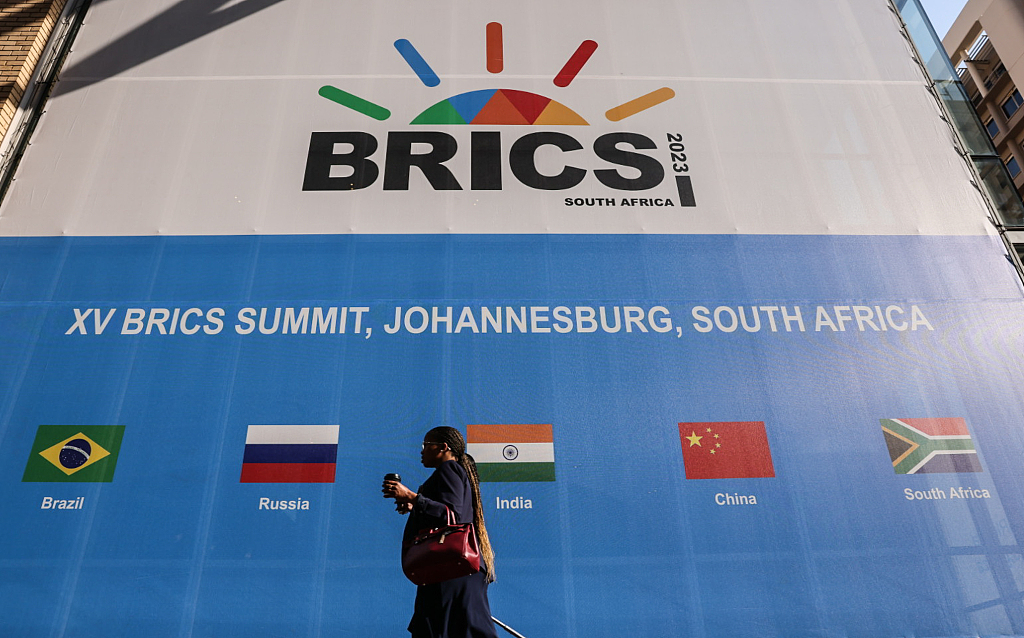 THE BRICS SUMMIT 2023
THE BRICS SUMMIT 2023
Gülperi GÜNGÖR 25.09.2023 -
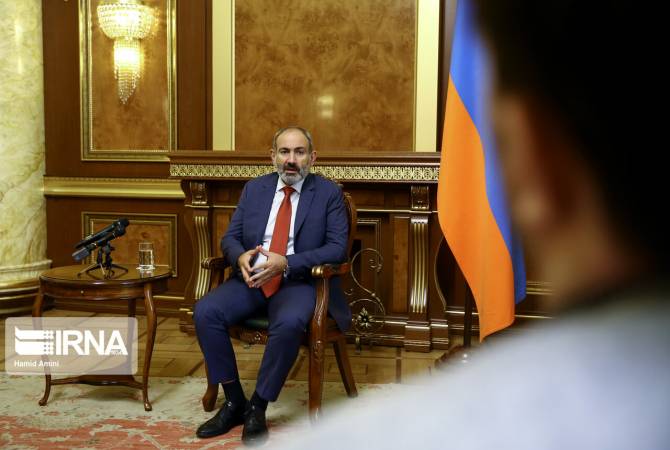 PASHINYAN AND MNATSAKANYAN’S DISCREPANCIES REGARDING RELATIONS WITH TURKEY
PASHINYAN AND MNATSAKANYAN’S DISCREPANCIES REGARDING RELATIONS WITH TURKEY
Berfin Mahide ERTEKİN 02.10.2019 -
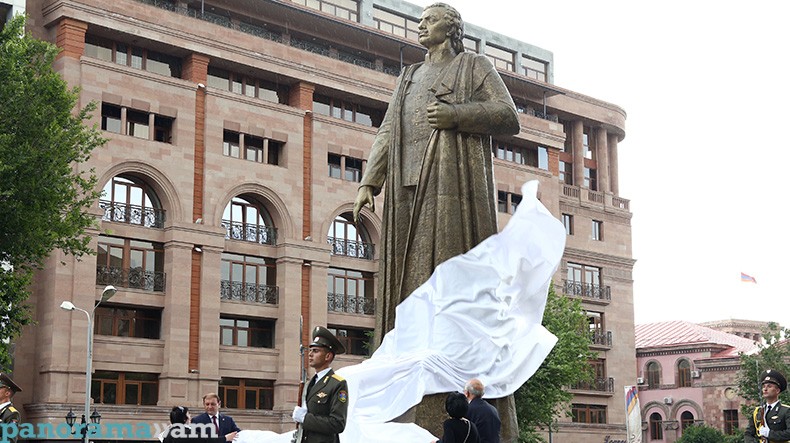 A NAZI WHO IS ARMENIA’S NATIONAL HERO
A NAZI WHO IS ARMENIA’S NATIONAL HERO
Mehmet Oğuzhan TULUN 16.06.2016 -
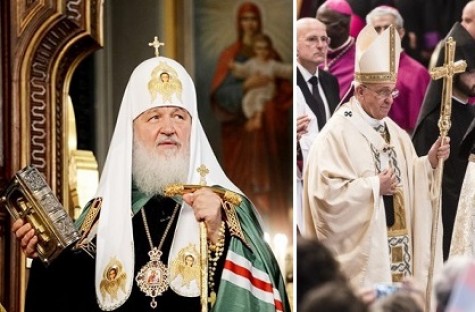 POPE FRANCIS SHOULD HEED PATRIARCH KIRILL’S REMARKS
POPE FRANCIS SHOULD HEED PATRIARCH KIRILL’S REMARKS
Mehmet Oğuzhan TULUN 12.01.2016 -
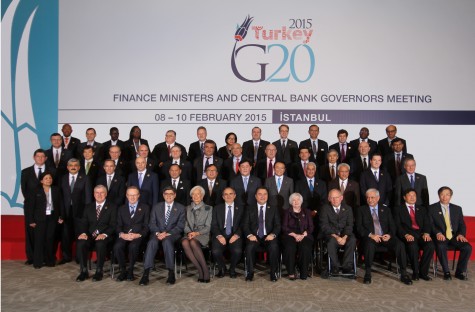 TURKEY’S PRESIDENCY OF THE G-20 IN 2015
TURKEY’S PRESIDENCY OF THE G-20 IN 2015
Hande Apakan 04.03.2015
-
25.01.2016
THE ARMENIAN QUESTION - BASIC KNOWLEDGE AND DOCUMENTATION -
12.06.2024
THE TRUTH WILL OUT -
27.03.2023
RADİKAL ERMENİ UNSURLARCA GERÇEKLEŞTİRİLEN MEZALİMLER VE VANDALİZM -
17.03.2023
PATRIOTISM PERVERTED -
23.02.2023
MEN ARE LIKE THAT -
03.02.2023
BAKÜ-TİFLİS-CEYHAN BORU HATTININ YAŞANAN TARİHİ -
16.12.2022
INTERNATIONAL SCHOLARS ON THE EVENTS OF 1915 -
07.12.2022
FAKE PHOTOS AND THE ARMENIAN PROPAGANDA -
07.12.2022
ERMENİ PROPAGANDASI VE SAHTE RESİMLER -
01.01.2022
A Letter From Japan - Strategically Mum: The Silence of the Armenians -
01.01.2022
Japonya'dan Bir Mektup - Stratejik Suskunluk: Ermenilerin Sessizliği -
03.06.2020
Anastas Mikoyan: Confessions of an Armenian Bolshevik -
08.04.2020
Sovyet Sonrası Ukrayna’da Devlet, Toplum ve Siyaset - Değişen Dinamikler, Dönüşen Kimlikler -
12.06.2018
Ermeni Sorunuyla İlgili İngiliz Belgeleri (1912-1923) - British Documents on Armenian Question (1912-1923) -
02.12.2016
Turkish-Russian Academics: A Historical Study on the Caucasus -
01.07.2016
Gürcistan'daki Müslüman Topluluklar: Azınlık Hakları, Kimlik, Siyaset -
10.03.2016
Armenian Diaspora: Diaspora, State and the Imagination of the Republic of Armenia -
24.01.2016
ERMENİ SORUNU - TEMEL BİLGİ VE BELGELER (2. BASKI)
-
AVİM Conference Hall 24.01.2023
CONFERENCE TITLED “HUNGARY’S PERSPECTIVES ON THE TURKIC WORLD"









